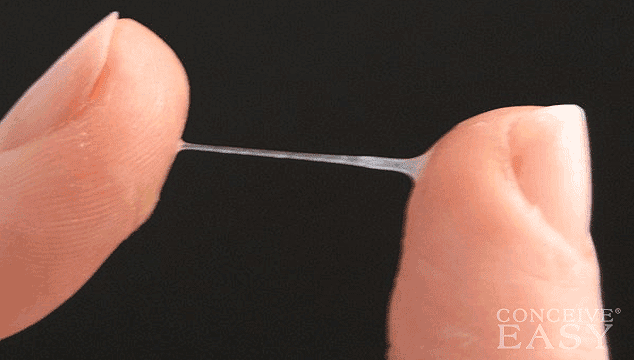![]() The information provided by our expert should not constitute a diagnosis of your condition. Always consult a medical practitioner or healthcare provider for a formal diagnosis. By making use of this content, you agree that ConceiveEasy and the expert assume no liability.
The information provided by our expert should not constitute a diagnosis of your condition. Always consult a medical practitioner or healthcare provider for a formal diagnosis. By making use of this content, you agree that ConceiveEasy and the expert assume no liability.
One of the oldest and most reliable ways to track your ovulation is to learn how to check your cervical mucus. Your cervical mucus is the natural secretions from your vagina. This mucus can tell you a whole lot about your body, and where you are in your menstrual cycle. Claim Your 20 Free Pregnancy Tests – Click Here
Once you learn how to check your cervical mucus, you will be able to quickly pinpoint what part of your cycle you are on, including when you are ovulating. If you are trying to get pregnant, this is a very helpful trick to know.

One of the most important things to know about checking your cervical mucus is how to do it the right way. You need to first of all have trimmed fingernails when you are checking your cervical mucus, otherwise you could inadvertently cut or scratch yourself and that can really hurt.
Next, make sure that your hands have been washed and dried completely so you do not risk getting an infection. Insert one or two fingers into your vagina, trying to reach your cervical area. If you are not comfortable doing this, you can try to use toilet paper to check your cervical mucus, or check your underwear for mucus spots.

There can be many different stages, colors and consistencies of cervical mucus. This is completely normal, and as you go through different parts of your cycle, cervical mucus changes will be noticed. For example, just after your period, you will see no visible cervical mucus.
Once the fertile part of your cycle begins to come along, your cervical mucus will be white or cream colored, thick, sticky, and stretchy. The optimal cervical mucus that indicates that ovulation is happening is clear, stretchy, and has the consistency of egg whites. If you have heard of “egg white cervical mucus” before, this is what it is. After ovulation, your cervical mucus will slowly go away until the next cycle.

It is also important to keep in mind that some medication, like allergy medications or antihistamines can affect the consistency and production of cervical mucus. You should know that if you are taking these medications then your cervical mucus will not be what it would be otherwise.
Also know that certain medical conditions, like PCOS can affect cervical mucus. Women with these conditions might produce a cervical mucus that seems like a fertile quality cervical mucus when it is really not. Talk to your doctor if you suffer from a condition that you think might affect your cervical mucus.










Comments